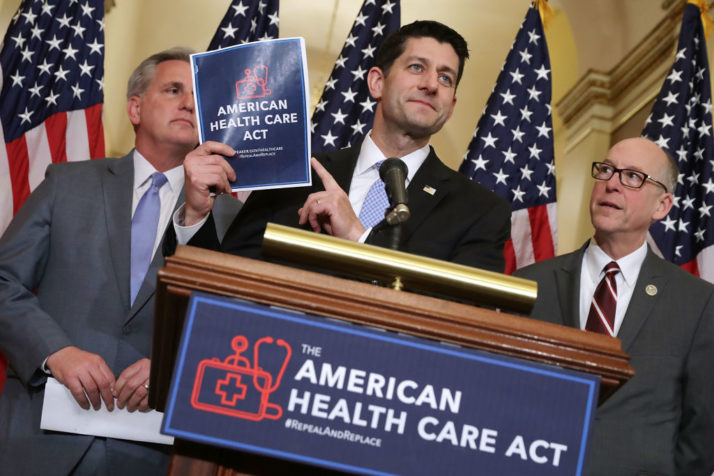Health Care bill fails in Senate
July 30, 2017
After the Republican leaders in the Senate successfully mustered enough votes to pass a procedure to initiate debate on how to best follow-through on Republican’s years-long promise to repeal and replace the Affordable Care Act, the senator who was critical in the passage of that procedural vote ended up sinking the Republican’s most recent and likely most feasible attempt to repeal and replace the health care law.
Sen. John McCain, R-Ariz., returned to Washington after recently being diagnosed with an aggressive form of brain cancer to get the procedural motion to cross the 50-vote threshold GOP leaders have been desperately trying to reach.
But McCain played an integral part in sinking Republican’s latest effort to repeal the health care act by voting against the skinny bill, a bill that—unlike many of the other proposals—would only require 50 votes to pass. If passed, it would maintain the health care law’s popular provisions but rescind the less popular ones.
“While the amendment would have repealed some of Obamacare’s most burdensome regulations, it offered no replacement to actually reform our health care system and deliver affordable, quality health care to our citizens,” McCain said in a statement explaining his no vote.
Republican leaders in the House and Senate tried to assure on-the-fence senators that the vote would be less about the skinny bill and more about beginning a conference between the House and Senate to decide on the Bill’s final form. But in his statement, McCain said he didn’t feel that reassured.
“The Speaker’s statement that the House would be ‘willing’ to go to conference does not ease my concern that this shell of a bill could be taken up and passed at any time,” McCain said.
Unlike other bills, the Skinny Bill wouldn’t require 60 votes and bipartisan participation to pass, since it abided by the Budget Reconciliation Act. The failure of the bill now leaves much uncertainty regarding how Republicans proceed on health care.
McConnell spoke on the floor after the vote failed saying “this clearly a disappointing moment” for Republicans and the health care repeal effort.
“I regret that our efforts were simply not enough this time,” McConnell said. He put the onus on Democrats to now fix the broken healthcare system but, at least for now, “it’s time to move on.”
Republicans only have a two-seats majority in the Senate, meaning they could only afford to have two Republicans voting against the bill, with the Vice President casting the deciding ballot and breaking the tie. McCain was joining in opposition by Sens. Susan Collins and Sen. Lisa Murkowski, R-Maine and R-Alaska respectively.





















![Movie poster for '[Rec]" (2007).](https://www.lionnewspaper.com/wp-content/uploads/2023/04/rec-640x900.jpg)



